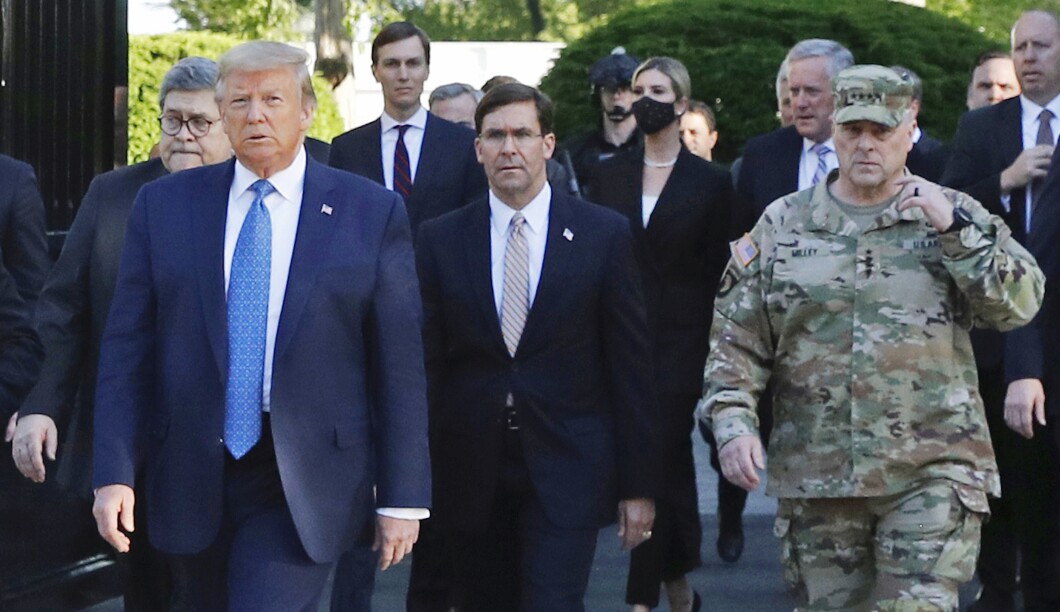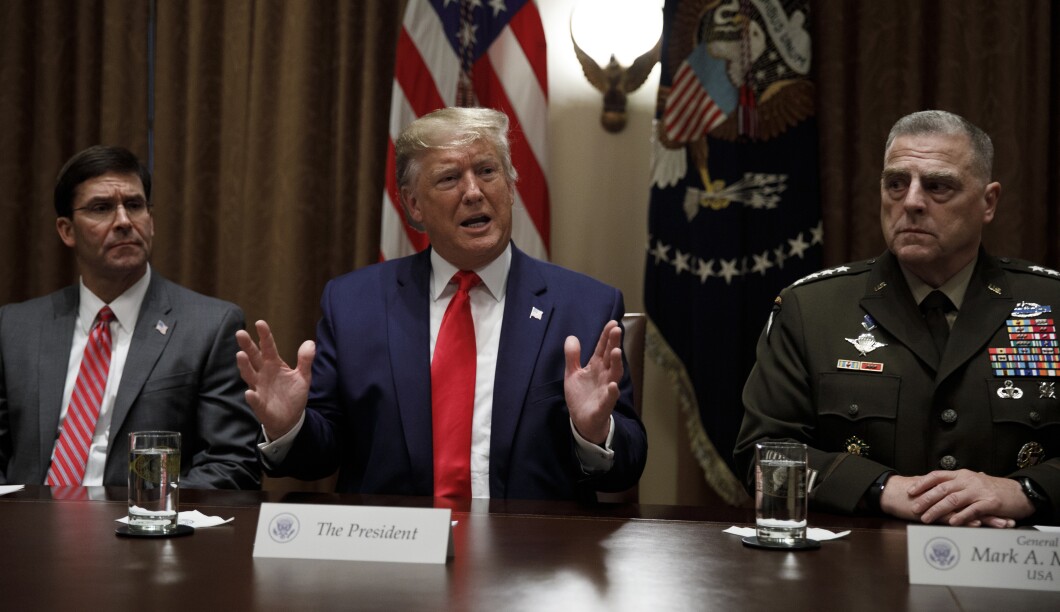
Gen. Mark Milley, the outgoing chairman of the Joint Chiefs of Staff, is on the verge of ending his four-year tenure in the position and his more than four decades in the Army.
Milley’s 43-year military career included combat command in places including Panama, Bosnia, Iran, and Afghanistan, as well as leadership positions such as chief of staff of the Army, the position he served in prior to his current position. As chairman, he serves as the principal military adviser for the president, secretary of defense, and National Security Council.
HOUSE OVERSIGHT LAUNCHES INVESTIGATION INTO GRANHOLM ELECTRIC VEHICLE ROAD TRIP
He has been chairman for the latter part of the Trump administration and well into President Joe Biden’s term, both of which included different and difficult tasks he had to navigate.
Former President Donald Trump chose Milley against the advice of his first secretary of defense, Marine Gen. James Mattis. The former president’s feelings toward Milley soured, however, as the general increasingly found himself in a bind between the then-president’s demand for loyalty and his own strong beliefs in both a civilian-controlled military and its apolitical nature.
Those tough situations include his controversial walk with Trump from the White House across Lafayette Square to St. John’s Church shortly after law enforcement officials cleared protesters out of the way during the racial justice protests in the summer of 2020. Milley quickly apologized for his participation in the stunt.
“I should not have been there,” Milley said shortly thereafter. “My presence in that moment and in that environment created a perception of the military involved in domestic politics.”

He also had to navigate the tumultuous 2020 election in which there were concerns that Trump, who lost the election but refused to concede, citing unconfirmed claims of fraud, could act in ways to subvert the election and remain in power. Milley called his Chinese counterpart to assure them the United States wouldn’t launch a surprise attack against them, a decision that, despite the frequency of his engagement with his foreign counterparts, incurred significant scrutiny from congressional Republicans.
Both current and former military leaders have praised Milley’s extensive career in recent weeks as his military service comes to an end, even as Trump accused Milley of treason and said his actions have been worthy of execution.
“I think, after the dust settles and we’ve had a chance to look at it in retrospect, Mark’s reputation is going to stand up very well, and I’m confident that 20 or 30 years from now, the historians going to be very kind to him,” retired Vice Adm. Robert Murrett, who served as director of the National Geospatial-Intelligence Agency and is now deputy director of the Institute for Security Policy and Law at Syracuse University, told the Washington Examiner.
During the Biden administration and by extension the second half of Milley’s chairmanship, the military ended its 20-year war in Afghanistan, Russia subsequently invaded Ukraine in February 2022, and the DOD has continued to turn its attention from the Middle East to the Pacific region to combat a growing threat from Beijing.
“General Milley was a true strategic thinker. Most people think about the next objective,” retired Gen. Frank McKenzie, former head of U.S. Central Command, told the Washington Examiner. “He always saw deeply into what followed the attainment of our immediate goals and what our follow-on options could and should be. He was one of the most effective chairmen in the history of that important office.”

Both presidents he served under sought to withdraw from Afghanistan. Trump ordered the withdrawal of U.S. forces from Afghanistan once he lost the 2020 election, though senior officials did not go through with the immediate withdrawal plans. Biden followed through on the idea in August 2021, against Milley’s and other senior defense leaders’ advisement. The overall withdrawal of Afghanistan was fraught with problems, saw the Taliban rapidly reassume power for the first time since 2001, and culminated in a deadly suicide bombing, which resulted in the deaths of 13 U.S. troops.
“In particular, his support of Central Command in turbulent times was very much appreciated,” McKenzie added. “His deep support for the principle of primacy of civilian control of the military across two very different presidential administrations will be one of his most lasting legacies.”
CLICK HERE TO READ MORE FROM THE WASHINGTON EXAMINER
Most recently, the department has been focused on aiding Ukraine as it fends off Russian aggression. Milley and Defense Secretary Lloyd Austin have met with defense leaders from across the globe individually and at monthly meetings where there are defense leaders from roughly 50 nations as they lead the international efforts to assist Kyiv.
“Gen. Milley, we’re going to miss your expertise, your professionalism, your commitment, and the great example that you’ve set. So thank you for all that you have done to support the Ukrainian armed forces in their fight for freedom,” Austin said after last week’s Ukraine Defense Contact Group meeting. “And thank you for your lifetime of heartfelt service to the United States of America.”






